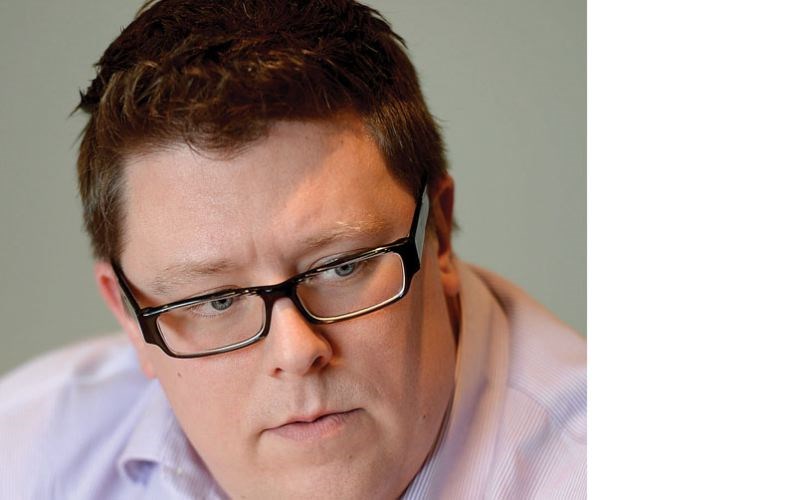Steps were missed by many that could have prevented the deadly explosion that leveled the Lakeland MIlls sawmill, Sinclar Group president Greg Stewart said Wednesday morning during testimony at the coroner's inquest into the incident.
Asked by coroner's counsel John Orr to give his opinion on what went wrong, Stewart said it is a "very complex issue."
"It was a dust explosion that occurred and the question is how did we get to that point," Stewart said. "And when we take a look, there are a number of factors and it's quite complex to determine why we got to where we are.
"And all along the way, as I keep replaying this over and over, there are steps that individuals, companies and organizations could take that could have stopped the chain of events, and they were missed."
Asked to elaborate, Stewart said it was the "lack of knowledge around the hazard that we have in our mills and the opportunity to identify what those hazards were and the opportunities to get more knowledge about those were missed."
That sawmill operators and WorkSafeBC were unaware wood dust-fueled explosions could occur in the relatively open areas of a sawmill prior to the blasts at Lakeland and at Babine Forest Products in early 2012 has been a theme throughout the inquest.
Orr noted there had been prior dust-related explosions in this region - at Pacific Bioenergy in Prince George in 2010 and twice at West Fraser's WestPine medium density fibreboard plant in Quesnel in 2011.
Stewart said he was aware of the incidents but noted neither is a sawmill and the explosions originated inside processing equipment as opposed to an area of containment.
Orr countered that those events can still set off pressure waves and create further explosions. Stewart replied that he was not aware of that possibility prior to the April 23, 2012 incident at Lakeland.
Glenn Roche and Alan Little died from injuries suffered in the blast and 22 others were injured, many seriously.
Stewart said he was at home putting his daughters to bed when he got the call that Lakeland had gone up in flames and quickly made his way to the scene.
"There is an element of disbelief to see something of that magnitude and just a genuine concern for the people that were there," Stewart told Orr.
A member of the inquest's five-man jury commented that on the Monday following the Jan. 20, 2012 Babine explosion, an alert was sent out at the sawmill where he worked telling employees to be extra diligent about keeping the facility clean and avoiding spot fires. It was done even though no one knew exactly what caused the blast, he noted.
"Like I said earlier, there were probably missed opportunities all through this event and that may be one," Stewart replied.
When a third shift had been added at Lakeland in mid-2011, Stewart said other mills had been successfully running three shifts and the risk of an explosion was unknown.
He said a campaign to instill a culture of safety in all Sinclar Group mills began at about the same time with Stewart visiting the facilities to tell workers they had a right to refuse unsafe work in December 2011 and January 2012.
He said it was done in response to rates of injury at the mills and trouble getting employees to attend joint committees on health and safety at Lakeland where just three such meetings were held in 2011.
In earlier testimony, the inquest heard there were attempts to adjust the meeting times to cater to employees but there were also times when supervisors would refuse them permission to leave their work stations to attend the meetings.
Following a Feb. 6, 2012, visit by two WorkSafeBC inspectors, Stewart said efforts to improve cleanup at Lakeland began that included adjusting shifts so cleanup crews did their work in the early morning before the day's processing began.
Lakeland was also in the process of purchasing an industrial-strength vacuuming system, where workers would attach hoses to a piping system to clean up trouble spots missed by the mill's dust collection system, which sucked dust away from machines into a baghouse.
Stewart said that system would have been in place by fall 2012. A fire safety plan would also have been ready by then, once work on installing a new sorting system and dust conveying system for that area of the sawmill had been completed.
Stewart is the grandson of one of Sinclar Group's founders.
"This incident was awful for all of us, all the way through the organization," Stewart said. "There's not a day that goes by that this event isn't thought about or discussed in some way.
"I've said it before that we're so sorry that this has happened and that the families and employees have had to go through the difficult times that this event has cause and I can't even begin to imagine what that is like for them.
"Where we have to stay focused is making sure that never happens again."
Stewart gave his testimony prior to the inquest being adjourned so counsel can look at new evidence that has been disclosed. He has sat through the entire two-and-a-half weeks the inquest has lasted so far.



